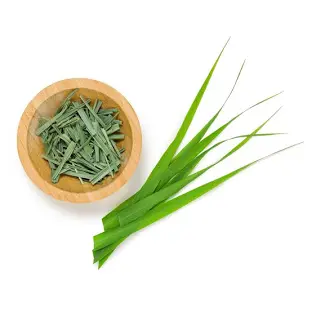Jamaica is known for its vibrant culture, rich history, and deep-rooted connection to nature. One of the most cherished traditions on the island is the use of bush teas—herbal infusions made from a variety of plants, leaves, roots, and flowers. These teas are not just beverages but an integral part of Jamaican folk medicine, used for healing, relaxation, and overall wellness. From common herbs to rare medicinal plants, let’s explore some of the most popular bush teas in Jamaica, their botanical names, and their powerful healing properties.
Popular Bush Teas in Jamaica
Cerasee (Momordica charantia)
Cerasee tea is one of the most well-known and widely used herbal teas in Jamaica. Made from the dried leaves and vines of the bitter melon plant, this tea is recognized for its detoxifying and blood-purifying properties. Traditionally, Jamaicans drink cerasee tea to cleanse the body, relieve digestive issues, and regulate blood sugar levels. Despite its intensely bitter taste, it remains a favorite for those seeking to maintain good health.
Fever Grass (Cymbopogon citratus)
Fever grass, known globally as lemongrass, is a staple in Jamaican households. This fragrant herb is boiled to make a soothing tea that helps with fevers, colds, headaches, and digestive problems. Many Jamaicans drink fever grass tea in the morning for a refreshing start to the day or at night to promote relaxation and better sleep.
Guinea Hen Weed (Petiveria alliacea)
Guinea hen weed, also called Anamu, is a powerful medicinal herb valued for its immune-boosting, anti-inflammatory, and cancer-fighting properties. The strong, garlic-like aroma of the plant makes it easily recognizable. Jamaicans use guinea hen weed tea to fight infections, reduce pain, and improve respiratory health.
Soursop Leaf Tea (Annona muricata)
Soursop, known for its delicious fruit, also produces leaves that are brewed into a medicinal tea. This tea is used in Jamaica for its calming effects, ability to lower blood pressure, and potential anti-cancer properties. Many people drink soursop leaf tea at night to reduce anxiety and promote restful sleep.
Peppermint (Mentha piperita)
Peppermint tea is a popular choice for soothing digestion, relieving nausea, and easing headaches. Jamaicans often prepare peppermint tea with fresh leaves from the garden, enjoying its cool, refreshing flavor.
Rare and Lesser-Known Bush Teas
Ram Goat Dash Along (Rivina humilis)
This rare Jamaican herb is known for its use in male vitality and energy-boosting remedies. It is often brewed as a tea to enhance stamina and general well-being.
Spirit Weed (Justicia pectoralis)
This lesser-known plant is used in Jamaican herbal medicine for its calming and sedative properties. The tea is believed to help with insomnia, stress, and respiratory issues.
Strong Back (Desmodium incanum)
Strong Back tea is commonly consumed by Jamaican men for its reputation as a strength-enhancing and stamina-boosting remedy. It is often mixed with other herbs to improve male reproductive health.
How Bush Teas Are Used in Jamaica
Jamaicans have long relied on bush teas for their natural healing properties. These teas are typically made by boiling fresh or dried leaves, roots, or flowers in water, then straining and drinking the infusion. They are used as:
- Morning tonics to cleanse and energize the body
- Remedies for colds, fevers, and digestive problems
- Relaxing nighttime drinks to promote sleep and reduce stress
- Traditional medicines for more serious ailments, often prescribed by local herbalists
Conclusion
Herbal and bush teas have been a cornerstone of Jamaican culture for centuries, offering natural remedies for a wide range of ailments. Whether common or rare, these teas provide healing benefits that continue to be valued and passed down through generations. Next time you visit Jamaica or seek natural healing, consider embracing the power of these traditional herbal teas.


